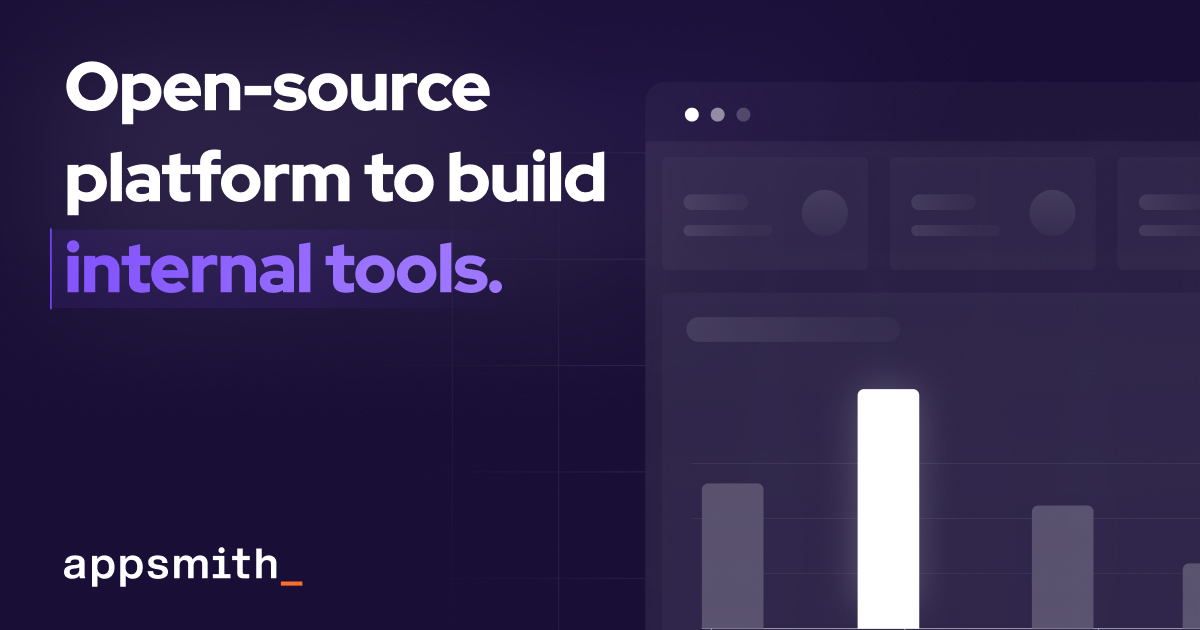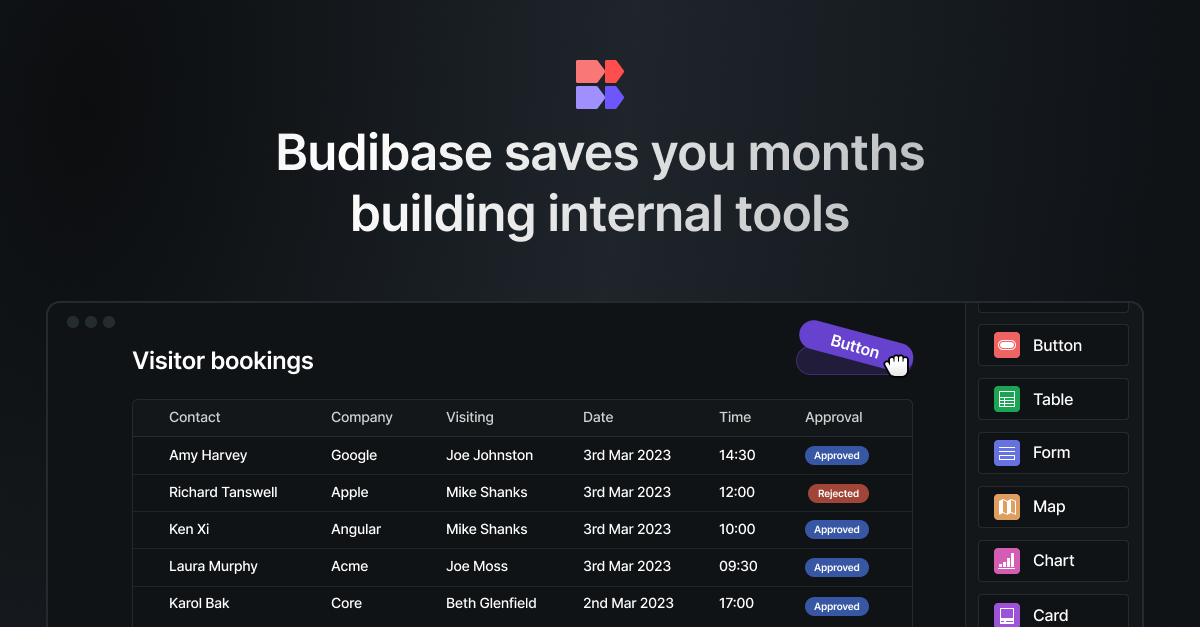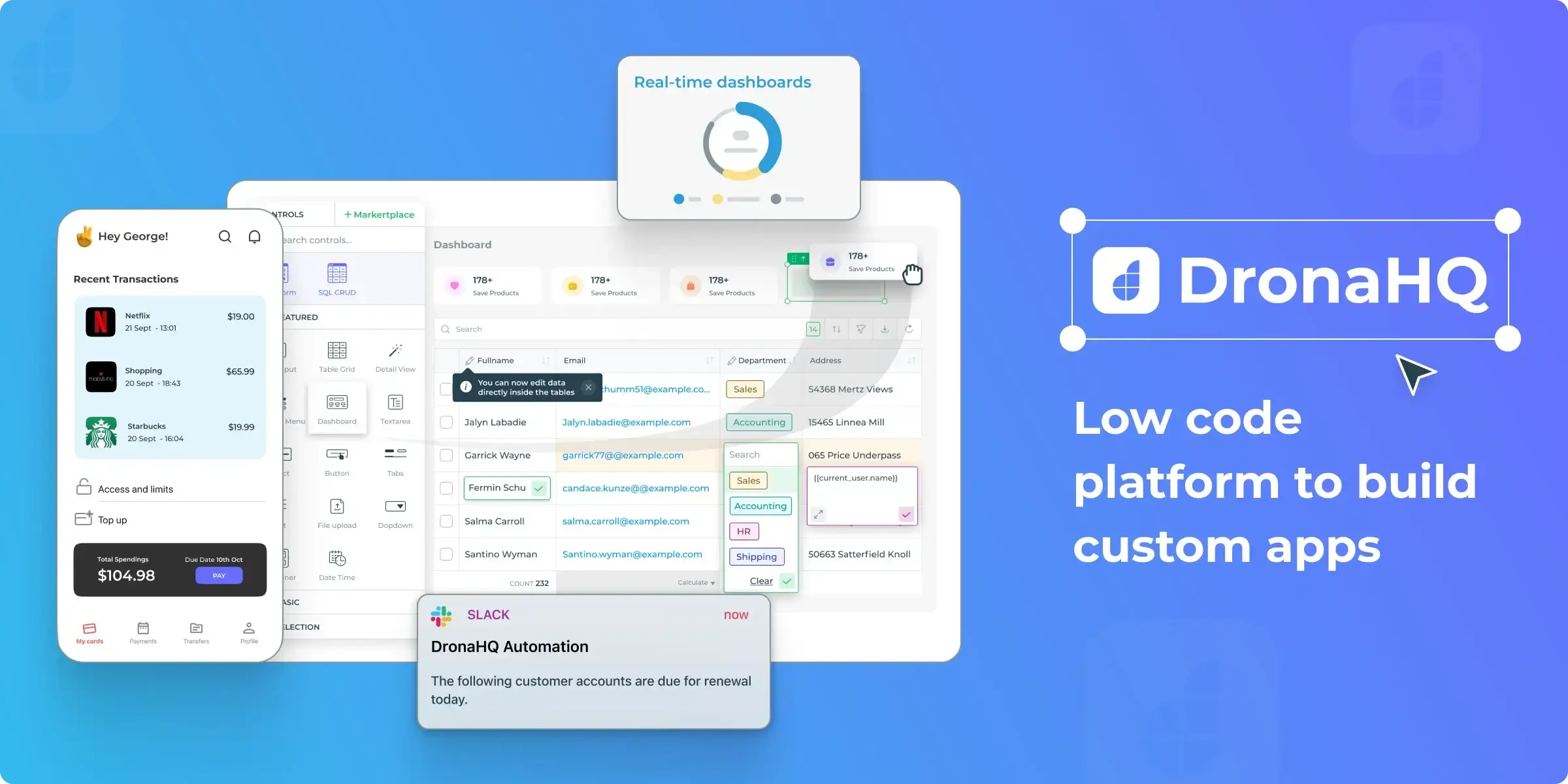











%201.png)























Low-code case studies we proudly share
Our low-code / no-code development company uses a comprehensive toolkit to create custom solutions for our clients. We combine them to come up with the most effective option possible.
Low-code and no-code tools we work with
Looking for more options? We work with a variety of low-code platforms to help you find the best fit for your needs.
Low-Code / No-Code Agency you can trust
We provide custom expert advice on adopting low-code tools for companies willing to innovate. Our team can help you to determine your pain points and create a roadmap to automate tedious tasks with no and low code solutions.

Why choose Akveo?
Picking the right low-code partner isn’t just about tech—it’s about finding a team that understands your business and helps you move faster without the usual headaches. That’s where we come in. At Akveo, we don’t just build apps—we provide low code application development services to solve problems, simplify workflows, and make sure your low-code investment actually delivers value.

Proven Low-Code Expertise
We've helped businesses across industries accelerate development and reduce costs with low-code platforms like Retool, UI Bakery, Airtable and others.

Tailored Solutions
Every business is unique—our team customizes low-code solutions to match your specific needs, ensuring flexibility and scalability.

Faster Time to Market
Low-code app development enables rapid prototyping and deployment, helping you launch applications in weeks instead of months.

End-to-End Support
From low-code platform selection to implementation and maintenance, our low-code/no-code advisory team guide you through every step to ensure long-term success.

Business-Centric Approach
We focus on delivering solutions that not only work technically but also drive real business value and operational efficiency.

Get a free consultation now
With our Eva Design System, we'll provide you with white-label app or multi-branded apps much faster.
Our Low-Code Development Process
We keep things simple and efficient. Our low code no code software development services are designed to help you get the most out of low-code—whether you need a custom app, automated workflows, or an internal tool. From idea to launch, we work closely with you to deliver solutions that fit your business needs.
Stay Ahead with Low-Code and No-Code Trends
Discover the latest in Low-Code / No-Code development, industry insights, and success stories.

8
min read

17
min read

6
min read
Frequently Asked Questions
The world of low-code app development is vast, and you surely have questions. Here's the list of the most common inquiries we've got so far from our customers.
What is low-code development?
Low-code development makes building software faster and easier. Instead of coding everything from scratch, developers use visual tools, drag-and-drop features, and ready-made components to put applications together with minimal coding. This speeds up the process, cuts costs, and makes it simpler to update and scale apps as needed—all without the complexity of traditional development.
How does low-code development compare to traditional development?
Low-code development platforms make building apps easier by using visual tools and automation. It helps developers work faster and get more done with fewer resources.
Traditional development, on the other hand, relies heavily on manual coding, which requires more time, effort, and technical expertise. While traditional coding offers complete flexibility, low-code is a great option for businesses looking to develop high-quality applications quickly without the need for large development teams.
Low-code vs No-code?
Low-code and no-code platforms both help you build apps faster, but they’re designed for different users.
Low-code is great for developers who want to speed up development while still having the flexibility to write some custom code.
No-code is designed for non-technical users, allowing them to build apps with drag-and-drop tools—no coding needed.
If you need full control and customization, go for low-code. If you want a quick, easy way to build without coding, no-code is the way to go!
What types of projects are best suited for low-code development?
Low-code is a great choice for projects that need to be built and launched quickly, like internal tools, customer portals, and MVPs. It’s especially useful for automating workflows and developing apps that require frequent updates or adjustments. Because of its flexibility, businesses can quickly respond to changing needs without spending months on development. Our low code app development services help businesses streamline these projects efficiently.
Who can benefit from low-code application development?
Low-code could be a solution for businesses of all sizes, from startups to large enterprises. It’s especially useful for teams that need to build apps quickly without a huge development budget. Whether you’re a business looking to automate workflows, a startup creating an MVP, or an enterprise integrating multiple systems, low-code can help. It’s also a great option for non-technical teams who want to build internal tools without relying entirely on developers.
Our low code no code application development services cater to a wide range of business needs.
What are the main advantages of hiring low-code developers?
Low-code developers can adapt quickly to changing project requirements, making them a great choice for fast-moving businesses. Since low-code development platforms use visual development tools and pre-built components, these developers can deliver applications much faster than traditional developers, reducing both time and costs. They also bring expertise in choosing the right tools, integrating systems, and customizing solutions to fit your business needs—all without the complexity of full-scale coding. This makes them ideal for companies looking to launch and update applications efficiently.
What are some popular low-code development tools?
There are many low-code platforms available, each designed for different use cases. Some of the most popular include Retool, UI Bakery, Webflow, Mendix, and Microsoft PowerApps. These platforms help businesses build, launch, and manage applications with little to no coding, making development faster and more accessible. Whether you need to automate workflows, create internal tools, or build customer-facing apps, there’s a low-code platform that can help streamline the process. And collaboration with a good low-code development company could be the right choice for your business.
How can low-code consulting help my business?
There are many low-code platforms available, each designed for different use cases. Some of the most popular include Retool, UI Bakery, Webflow, Mendix, and Microsoft PowerApps. These platforms help businesses build, launch, and manage applications with little to no coding, making development faster and more accessible. Whether you need to automate workflows, create internal tools, or build customer-facing apps, there’s a low-code platform that can help streamline the process. And collaboration with a good low-code development company could be the right choice for your business.
Can low-code development integrate with existing systems?
Yes, most low-code platforms are designed to integrate smoothly with your existing tools, databases, and enterprise systems. They offer built-in connectors, APIs, and automation features that allow for seamless data exchange and workflow management. Whether you need to sync with CRMs, ERPs, or third-party services, low-code development makes integration faster and easier than traditional coding approaches.
How secure are applications built with low-code platforms?
The security of low-code applications depends on the platform you use, but most reputable ones have solid protections built in. They offer encryption to keep your data safe, access controls to manage who can do what, and compliance with industry standards like GDPR and SOC 2. Some platforms even let you host your apps yourself for more control. That said, security isn’t just about the platform—you also need to set up proper user permissions and make sure your integrations are secure.
Can low-code applications scale with my business?
Yes, many low-code platforms are designed to grow with your business, handling more users and larger amounts of data without requiring a complete rebuild. Some platforms even offer enterprise solutions and self-hosting options for greater control and flexibility. The key is choosing a platform that meets your long-term needs and making sure it can integrate with other tools as your business expands.
Do low-code platforms support mobile app development?
Absolutely! Most low-code platforms let you create apps for both iOS and Android without extra coding. They include built-in responsive design tools and mobile-friendly features, making it easy to build apps that look great and function smoothly on any device. If you’re developing an internal tool or a customer-facing app, low-code / no-code services make mobile app development faster and more accessible.





.avif)




















.avif)


